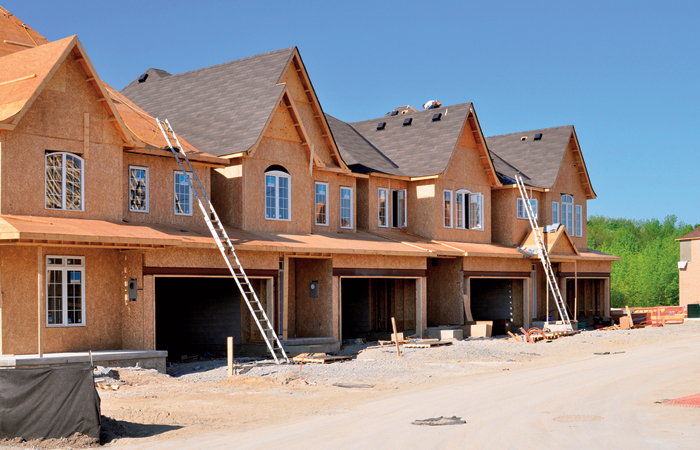Construction output fell by 1.3% in the final three months of last year compared with the previous quarter, as a 5% fall in new work offset a 4% rise in repair and maintenance activity.
In December, construction output is estimated to have slipped by 0.5%, according to the Office for National Statistics, as new work fell by 1.1% while repair and maintenance lifted by 0.4% in the month.
Three of the industry’s nine sectors fell in December, with the main contributors coming from infrastructure new work, and private housing repair and maintenance, which decreased by 6.4% and 1.1%, respectively.
However, over the whole of 2023 construction output lifted by 2% compared to a year ago, amounting to the third consecutive year of annual growth.
In the wider economy, the UK fell into recession during the final quarter of last year, official figures show, after the economy shrank by more than expected.
Gross domestic product dropped by 0.3% between October and December.
That follows a fall between July and September. The UK is considered to be in recession if GDP falls for two successive three-month periods.
McBains managing director of property and construction consultancy Clive Docwra says: “Today’s figures represent a serious blow for the construction industry, coming off the back of two previous months of falling output.
“It’s now crunch time for the sector with the UK economy entering recession in the final quarter of last year.
“In recent months a fall in new housebuilding has been a big factor in the decrease in growth, but today’s figures show new infrastructure work – which for a long while has propped up the sector – also drying up.
“While interest rates remain high and the economic picture continues to be unpredictable, we expect the overall outlook for 2024 to be one of uncertainty.
“The hope is that next month’s Budget statement by the Chancellor includes some measures to provide some impetus to the sector.”
Beard company operations director Mike Hedges adds: “Much like we have seen throughout the last 12 months, both December and the fourth quarter saw the increasing trend of repair and maintenance over committing to brand-new projects.
“This is as much driven by the economic climate and tougher borrowing conditions, as it is the shifting focus among a number of our customers to prioritise the improvement of existing building assets.
“While we have seen a number of positive indicators which has helped boost confidence, there’s no question inflation still remains a key barrier to growth, which remains twice the target of 2%.
“However, yesterday’s inflation news was better than expected, as many predicted another slight increase.”
The mark last month was lower than expected by many economists who expected prices to rise by 4.2%.







